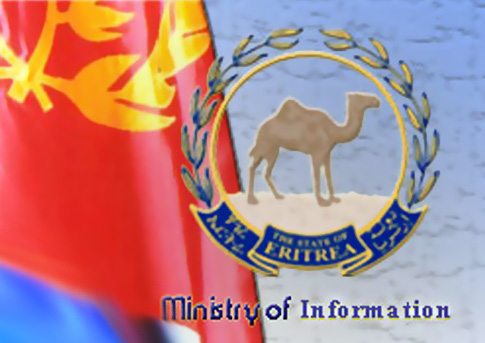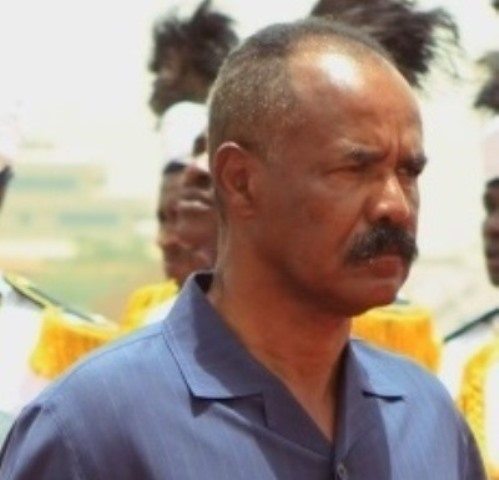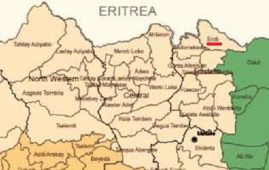A draft resolution that would authorize the deployment of 4,200 Ethiopian troops to Sudan’s disputed Abyei region is tabled at the U.N. Security Council. The draft resolution was submitted on Thursday morning, New york Time, by the United States Ambassador to the United Nations Susan Rice .
The draft is prepared based on the agreement by north and south Sudan officials to pull their troops from Abyei and have Ethiopian troops as peacekeepers. The agreement was signed on Monday in Addis Ababa after days of negotiation. Tension on the controversial Abiye region, which is oil rich and claimed by both sides, as the independence of south Sudan, July 9, approaches. Referendum on the area had been postponed indefinitely as both sides couldn’t agree on legitimate voters. On May 21, northern Sudan army seized the area, thereby exacerbating the possibility of all out war.
Ambassador Susan Rice noted that the draft resolution is:
to establish the interim security force for Abyei as requested by the Government of Sudan and the Government of South Sudan, consistent with the interim security agreement that was reached between the parties on Monday in Addis Ababa. The Council will begin consultations on this draft resolution which reflects the mandate proposed to the Council as agreed by the two parties and that calls for the deployment of 4,200 Ethiopian National Defense Force personnel under the United Nations flag, and we are looking forward to discussions with Council members in order to swiftly adopt a resolution authorizing this new interim security force for Abyei so that the agreement that both parties have reached which is obviously urgent and fragile can be implemented immediately and effectively.
Concerning the size of the troops, the Ambassador claimed:
The draft resolution that we tabled reflects the composition and the mandate that the two parties themselves have requested that they believe is necessary to effectively implement their agreement in Abyei. It also reflects the contribution that the Ethiopian defense forces have said they are prepared to make. And I think it also reflects input and assessment from UN personnel, who were…who were engaged, if not directly than on the margins of, these negotiations.
The draft resolution text, which was obtained by Reuters, states:
The Ethiopian force would be called the United Nations Interim Security Force in Abyei (UNISFA) and would be authorized to "ensure security in the Abyei area."
The draft says that UNISFA will have an initial deployment of six months and a mandate to monitor demilitarization of Abyei by northern and southern troops, protect civilians and provide security to U.N. and humanitarian aid workers.
"When necessary and in cooperation with the Abyei Police Service, (UNIFSA will) provide security for oil infrastructure in the Abyei Area," the draft says.
Reuter reported further that the 4,200 strong Ethiopians peacekeeping force will be separate from the joint U.N.-African Union force, UNAMID, in Darfur region, Sudan and the other 10,000-strong U.N. peacekeeping force, UNMIS,operating in north-south Sudan conflict areas. Khartoum wants the latter out of the country by July 9, as soon as south Sudan declares independence. UNMIS has already troops in Abyei region, yet those troops have failed to provide adequate protection to civilians in the region according to U.N. officials and diplomats, Reuters.
The expectation that Ethiopian troops could improve situations in Abiye is shared noted only by north and south Sudan government, but also by diplomats and analysts. In an interview on an American radio last week, former US Ambassador David Shinn and International Crisis Group’s (ICG) regional director EJ Hogendoorn expressed the shortfalls of the current peacekeepers will be recitified by Ethiopian troops who has better track records. EJ Hogendoorn noted that:
Part of the problem with what happened in Abyei[Sudan] was because some of the peacekeepers, these in case coming from Zambia, actually didn’t do the peacekeeping that they were supposed to do…..Obviously, that will be rectified by the Ethiopians who have a much better track record
Shinn, who remarked ‘Ethiopia has a tradition of sending peacekeepers around the region when called upon and they’re very good peacekeepers. They have a lot of experience, more than most African countries’, noted that it is not ideal to fetch peacekeepers from a neighboring country. Yet, he wariness on the prudence
There is, of course, some land that separates Abyei from the Ethiopian border so it probably will be okay. But in the ideal world, you want your peacekeepers to go one country removed from your borders…[as] there are too many ethnic groups that overlap borders and there’s always the possibility they can get engaged or be involved in some way. And ideally, you just want to avoid that situation, but there aren’t that many countries that can put forth some really good, experienced peacekeeping battalions and the Ethiopians can so that’s why they’re often selected.
Amb. Susan E. Rice briefing on the deployment Ethiopia troops in Abyei [excerpts]
Ambassador Susan E. Rice, U.S. Permanent Representative to the United Nations
U.S. Permanent Representative to the United Nations
U.S. Mission to the United Nations
New York, NY
June 23, 2011
Ambassador: …just tabled this morning a draft resolution to establish the interim security force for Abyei as requested by the Government of Sudan and the Government of South Sudan, consistent with the interim security agreement that was reached between the parties on Monday in Addis Ababa. The Council will begin consultations on this draft resolution which reflects the mandate proposed to the Council as agreed by the two parties and that calls for the deployment of 4,200 Ethiopian National Defense Force personnel under the United Nations flag, and we are looking forward to discussions with Council members in order to swiftly adopt a resolution authorizing this new interim security force for Abyei so that the agreement that both parties have reached which is obviously urgent and fragile can be implemented immediately and effectively.
In addition, as we have been saying in the Security Council and many other venues during the course of the last couple of weeks, we are gravely concerned about the humanitarian situation in Southern Kordofan, the fighting that has transpired there in particular. We are deeply concerned about attacks on and threats to and intimidation of UN personnel, obstructions to freedom of movement and access for humanitarian goods; allegations and indeed verified reports of aerial bombardment and other attacks against civilian personnel. This too remains a subject of discussion within the Council and attention, but we wanted to in particular to move forward in establishing the interim security force for Abyei so that that very important agreement can be implemented.
I’m happy to take a couple questions.
Reporter: On Sudan, you said that you hoped that this resolution will be adopted swiftly. Is it possible that it could happen this week?
Ambassador: Well, with respect to the resolution we tabled today, we haven’t even begun consultations on it so it’d be premature to speculate about when exactly it might be adopted. This will be, I think it’s important to note, the first establishment of a new peacekeeping operation in quite some time. And indeed that will undoubtedly require careful consideration in various capitals, including our own. So while we’ll move swiftly, I don’t think it realistic to be…to assume it will happen overnight.
Reporter: On the Darfur peace agreement, I know there was a meeting yesterday, is there some- it seems that most of the rebel groups have not..have spoken actually against the document. I wanted to know you know whether you think this will actually bring peace to Darfur.
Ambassador:….With respect to Darfur, we heard a briefing, as you know, from the Qatarian negotiator as well as Joint Special Representative Bosolay yesterday. We are of the view that that agreement represents a step, an important step, forward. Obviously, in and of itself it is not sufficient to end the conflict in Darfur, but we think it was a, an important step and we have supported it.
Reporter: Ambassador, the 4200 troops – that will be 4x higher than the current UN force in Abyei, why is that necessary? And Khartoum has agreed to this accord because it places Abyei in the North. Is that the understanding of the international community?
Ambassador: To your latter question, the answer is no. There is no such assumption or understanding. That is not the view of any recognized international entity. But nor is it the substance of the agreement, the interim security agreement, for Abyei. The purpose of that is to allow for the withdrawal of forces. At this stage that means the forces of the government of Sudan, which are now occupying Abyei , and that that area would become demilitarized and administered in a joint fashion and that would persist pending resolution of the critical underlying issues, which as you know, are not yet resolved. You had a first part to your question though.
Reporter: 4200, 4x higher than the current…
Ambassador: 4200. The draft resolution that we tabled reflects the composition and the mandate that the two parties themselves have requested that they believe is necessary to effectively implement their agreement in Abyei. It also reflects the contribution that the Ethiopian defense forces have said they are prepared to make. And I think it also reflects input and assessment from UN personnel, who were…who were engaged, if not directly than on the margins of, these negotiations. Ultimately, it’s obviously up for the Security Council to decide the strength and the mandate of any UN mission. But the United States, in tabling this draft, has sought to remain faithful to the agreement reached by the parties, which we understand was hard won and inherently fragile. And we think that the Council ought to give very, very serious consideration to the…to the request of the parties, both in terms of the mandate and composition of the force. Thank you very much.






Comments are closed.
Leave a Comment